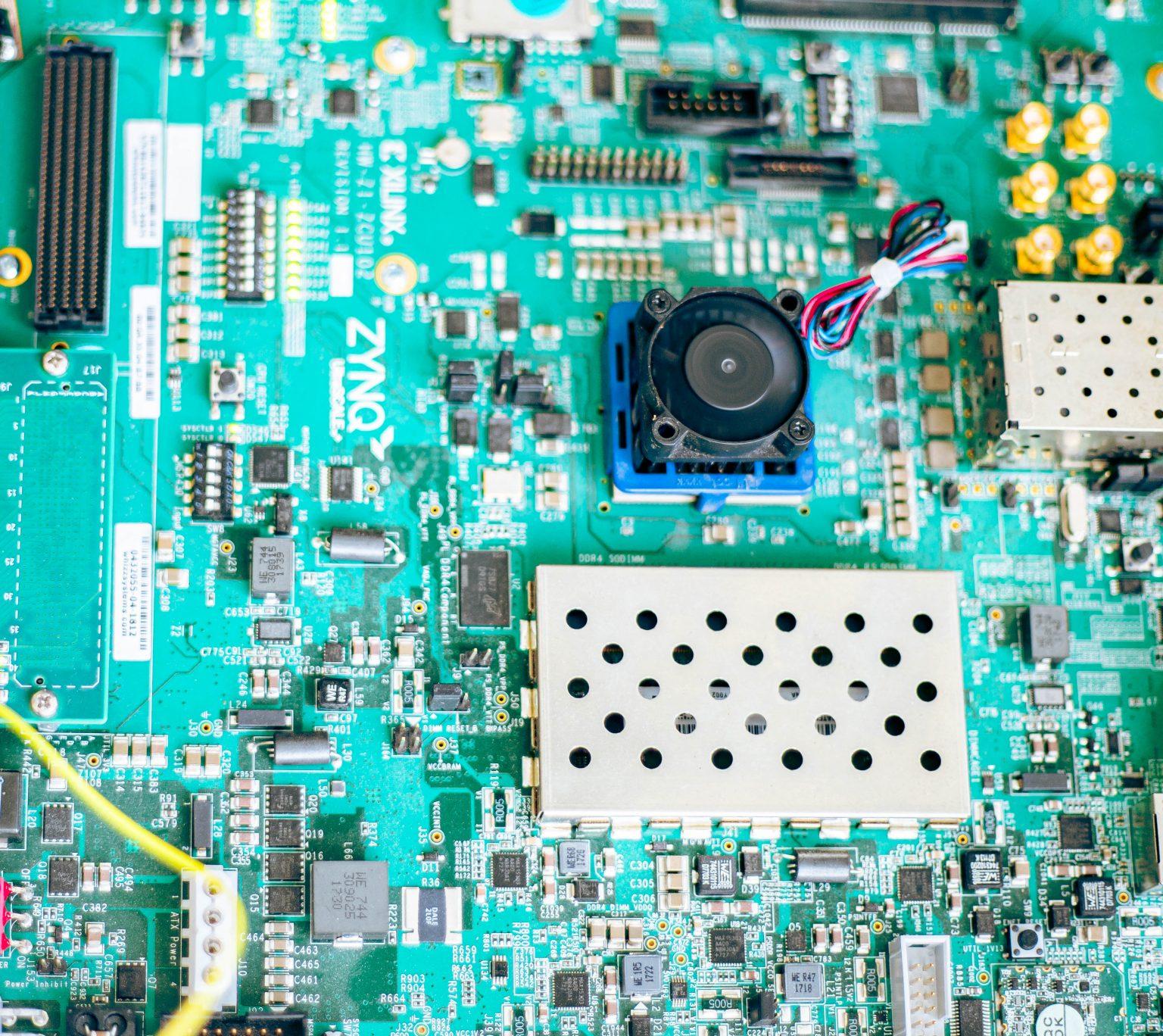Since The Institute of Electronics and Computer Science (EDI) and the Latvian Ministry of Foreign Affairs signed a Memorandum of Understanding on “Developing Quantum Technologies in Latvia”, EDI is already conducting research in the field of quantum technologies. The Horizon Europe project A-IQ Ready – Artificial Intelligence on quantum measurement information in distributed real-time edge computing systems – is one of these research projects. It is an international research project with 46 participants from different European countries.
With global environmental issues, social inequalities and geopolitical changes, the future holds many challenges for our society. To face and tackle these new challenges, we need to understand and make appropriate use of new digital technologies such as artificial intelligence (AI), the Internet of Things (IoT), robotics and biotechnology. The A-IQ Ready project is coordinated by the Austrian company AVL LIST GMBH, with financial support from the European Commission’s Horizon Europe programme together with Latvian co-funding under the Chips Joint Undertaking (Chips-JU). The Project Programme initiates advanced quantum effect-based sensing, artificial intelligence edge computing continuum and distributed intelligence technologies to realise the vision of intelligent and autonomous electronic components and systems in the digital age.
A-IQ Ready projekta koordinātos ir Austrijas uzņēmums AVL LIST GMBH, projekta finansiālais atbalsts ir no Eiropas Komisijas programmas “Apvārsnis Eiropa” kopā ar Latvijas līdzfinansējumu mikroshēmu kopuzņēmuma ietvarā (Chips-JU). Projekta programma ierosina progresīvu uz kvantu efektiem balstītu sensoru, mākslīgā intelekta robežskaitļošanas kontinuma un izkliedētās inteleģences tehnoloģijas, lai īstenotu vīziju par inteliģentu un autonomu elektronikas komponenšu un sistēmu digitālajā laikmetā.
A quantum represents the smallest discrete quantity of energy in a phenomenon. The word comes from the Latin Quantus (how much). For example, a quantum in light is called a photon, in electricity an electron. The discovery of the quantum more than 100 years ago revolutionised physics. Nowadays, researchers focus on three applications of quantum physics: quantum computing, quantum communications and quantum sensors.
Quantum sensor technology is the most technologically advanced and is already widely used in research, for example, in microscopic imaging of magnetic materials. However, the technology has the potential for a wider mass deployment. Quantum magnetic flux and gyroscopic sensors offer the highest sensitivity and accuracy without the need for calibration, providing unrivalled measurement quality when used for magnetic field measurement. Such sensors can be used to precisely measure the Earth’s magnetic field, allowing fluctuations and changes in the field to be distinguished depending on the terrain, thus enabling localisation without the need for navigation satellites. Such a localisation system will improve the real-time characteristics and accuracy of autonomous agents and reduce the number of false alarms or misinformation incidents through the concepts of artificial intelligence and multi-agent systems. Communication and decision-making between groups of agents should be based on the latest technology as a priority. Management of the AI edge computing continuum will allow decentralised application development while ensuring optimal use of available resources. The synergies of these technologies can be applied in areas such as: civil security, digital health, smart logistics for supply chains and engine applications. The A-IQ Ready project will provide the basis for a digital society in Europe, moving towards the concept of “Society 5.0”. Our tasks in this project are to develop the interface and control architecture, algorithms for hardware- and software-based pre-processing of quantum sensor data and simultaneous extraction of useful measurements, as well as a real-time demonstrator.
The main scientific contribution of EDI is the development of the control, data acquisition and pre-processing subsystem of this quantum sensor. The developed sensor will be used for rescue operations in underground fire scenarios. GPS is not available underground and smoke particles make it difficult to use other sensors (cameras and aircraft) for localisation. In addition, the real-time pre-processing solution developed by EDI will allow sensors to be used to monitor electric motors, i.e. magnetic field fluctuations can provide early predictions of motor faults and plan motor repairs.
Photo: EDI (FPGA-based System-on-Chip development kit with EDI-designed digital circuits for quantum sensor’s control and data preprocessing.)
